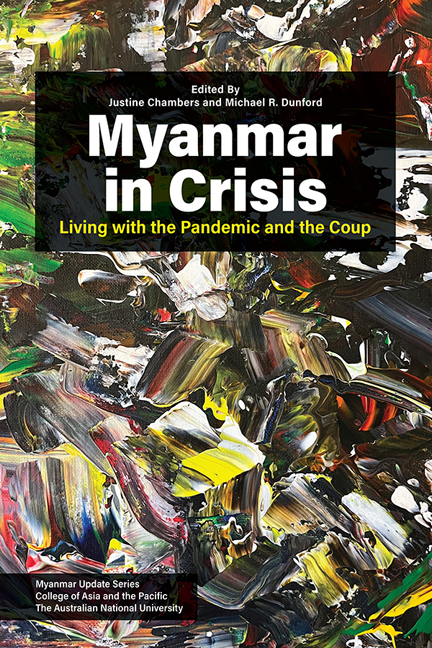9 - Pandemic Challenges of Fishers at Kyauk Myaung Segment, Irrawaddy River, Myanmar
Published online by Cambridge University Press: 01 March 2024
Summary
In March 2020, the world was transformed in a matter of weeks as the COVID-19 pandemic spread across borders, forcing governments to implement restrictive measures to try and contain the spread of the highly contagious virus. During this time, people in Myanmar faced significant challenges as they were forced to adapt to new restrictions on movement, with many losing their primary source of income. In Kyauk Myaung, a fishing community of seven villages, the nationwide restrictions put in place significantly impacted livelihoods. Alongside various lockdown orders, fishing communities in Myanmar experienced prohibitions on fishing, stay-at-home restrictions, as well as a of series of other restrictions and new household expenditures concerning health, including masks, face shields, antiseptic handgel and additional personal protective equipment (PPE) (in some cases). In addition to these restrictions, markets and small businesses were closed, meaning fishermen had nowhere to sell their wares. While these measures were put in place to try and curb the spread of the virus, they had a significant impact on people's livelihoods. During 2020–2021, people in Kyauk Myaung who depend on fishing faced many difficulties as a result of stay-at-home orders and severe restrictions on fishing. Their main source of income was lost overnight and many households faced new challenges for their everyday survival.
This chapter examines the impacts of the restrictive measures put in place in Myanmar to try and combat the virus in Kyauk Myaung. This is a response to recent calls to provide detailed analysis about the impacts of COVID-19 on fishing communities across the globe. N.J. Bennett et al. (2020) and C.J. Knight et al. (2020) state that the impacts of COVID-19 on the social, economic and environmental sectors are yet to be quantified globally, although some efforts have already been made at the regional level. Research from Myanmar, highlights the devastating impacts of the pandemic on fishing communities and their livelihoods. This chapter is focused on Kyauk Myaung in Shwebo district, Sagaing region, which is famous for relying on freshwater fisheries. When I began research for this study in 2020, I found that there was an overwhelming crisis in the fisheries sector due to the restrictions put in place to combat the spread of the virus.
- Type
- Chapter
- Information
- Myanmar in CrisisLiving with the Pandemic and the Coup, pp. 213 - 234Publisher: ISEAS–Yusof Ishak InstitutePrint publication year: 2023

